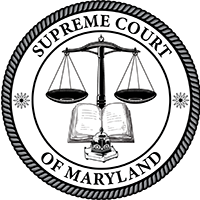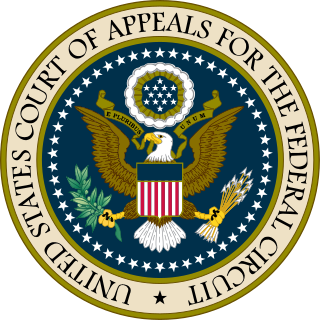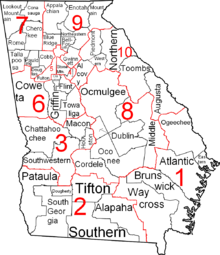
The United States district courts are the trial courts of the U.S. federal judiciary. There is one district court for each federal judicial district. Each district covers one U.S. state or a portion of a state. There is at least one federal courthouse in each district, and many districts have more than one. District court decisions are appealed to the U.S. court of appeals for the circuit in which they reside, except for certain specialized cases that are appealed to the U.S. Court of Appeals for the Federal Circuit or directly to the U.S. Supreme Court.
A county court is a court based in or with a jurisdiction covering one or more counties, which are administrative divisions within a country, not to be confused with the medieval system of county courts held by the high sheriff of each county.
The Courts of England and Wales, supported administratively by His Majesty's Courts and Tribunals Service, are the civil and criminal courts responsible for the administration of justice in England and Wales.
In common law systems, a superior court is a court of general jurisdiction over civil and criminal legal cases. A superior court is "superior" in relation to a court with limited jurisdiction, which is restricted to civil cases involving monetary amounts with a specific limit, or criminal cases involving offenses of a less serious nature. A superior court may hear appeals from lower courts. For courts of general jurisdiction in civil law system, see ordinary court.
In the United States, a federal judge is a judge who serves on a court established under Article Three of the U.S. Constitution. Such judges include the chief justice and associate justices of the U.S. Supreme Court, circuit judges of the U.S. Courts of Appeals, district judges of the U.S. District Courts, and judges of the U.S. Court of International Trade. These judges are often called "Article Three judges".
The United States District Court for the Northern District of Georgia is a United States district court which serves the residents of forty-six counties. These are divided up into four divisions.

The Supreme Court of Maryland is the highest court of the U.S. state of Maryland. The court, which is composed of one chief justice and six associate justices, meets in the Robert C. Murphy Courts of Appeal Building in the state capital, Annapolis. The term of the Court begins the second Monday of September. The Court is unique among American courts in that the justices wear red robes.

The government of Maryland is conducted according to the Maryland Constitution. The United States is a federation; consequently, the government of Maryland, like the other 49 state governments, has exclusive authority over matters that lie entirely within the state's borders, except as limited by the Constitution of the United States.

The United States Court of Appeals for the Federal Circuit is one of the 13 United States courts of appeals. It has special appellate jurisdiction over certain categories of specialized cases in the U.S. federal court system. Specifically, it has exclusive appellate jurisdiction over all U.S. federal cases involving patents, trademark registrations, government contracts, veterans' benefits, public safety officers' benefits, federal employees' benefits, and various other types of cases. The Federal Circuit has no jurisdiction over criminal, bankruptcy, immigration, or U.S. state law cases. It is headquartered at the Howard T. Markey National Courts Building in Washington, DC.
The judiciary of Australia comprises judges who sit in federal courts and courts of the States and Territories of Australia. The High Court of Australia sits at the apex of the Australian court hierarchy as the ultimate court of appeal on matters of both federal and State law.

The Supreme Court of Georgia is the highest judicial authority of the U.S. state of Georgia. The court was established in 1845 as a three-member panel, increased in number to six, then to seven in 1945, and finally to nine in 2017. Since 1896, the justices have been elected by the people of the state. The justices are currently elected in statewide non-partisan elections for six-year terms, with any vacancies filled through an appointment by the Governor.
The Superior Court is the state court in the U.S. state of New Jersey, with statewide trial and appellate jurisdiction. The New Jersey Constitution of 1947 establishes the power of the New Jersey courts. Under the State Constitution, "'judicial power shall be vested in a Supreme Court, a Superior Court, County Courts and inferior courts of limited jurisdiction.'" The Superior Court has three divisions: the Appellate Division is essentially an intermediate appellate court while the Law and Chancery Divisions function as trial courts. The State Constitution renders the New Jersey Superior Court, Appellate Division the intermediate appellate court, and "[a]ppeals may be taken to the Appellate Division of the Superior Court from the law and chancery divisions of the Superior Court and in such other causes as may be provided by law." Each division is in turn divided into various parts. "The trial divisions of the Superior Court are the principal trial courts of New Jersey. They are located within the State's various judicial geographic units, called 'vicinages,' R. 1:33-2(a), and are organized into two basic divisions: the Chancery Division and the Law Division".

Superior courts in California are the state trial courts with general jurisdiction to hear and decide any civil or criminal action which is not specially designated to be heard in some other court or before a governmental agency. As mandated by the California Constitution, there is a superior court in each of the 58 counties in California. The superior courts also have appellate divisions which hear appeals from decisions in cases previously heard by inferior courts.

The judiciary of Colombia is a branch of the State of Colombia that interprets and applies the laws of Colombia, to ensure equal justice under law, and to provide a mechanism for dispute resolution. The judiciary comprises a hierarchical system of courts presided over by judges, magistrates and other adjudicators.

The Connecticut Superior Court is the state trial court of general jurisdiction. It hears all matters other than those of original jurisdiction of the Probate Court, and hears appeals from the Probate Court. The Superior Court has 13 judicial districts which have at least one courthouse and one geographical area court. Civil cases, administrative appeals, family matters, and serious criminal offenses are generally heard in a judicial district courthouse. All criminal arraignments, misdemeanors, felonies, and motor vehicle violations that require a court appearance are heard in one of the 20 geographical area courts.

The Illinois circuit courts are state courts of the judiciary of Illinois. They are trial courts of original and general jurisdiction.

Wyoming District Courts are the state trial courts of general jurisdiction in Wyoming.
The Superior Court is North Carolina's general jurisdiction trial court. It was established in 1777 and is North Carolina's oldest court.
Business Courts, sometimes referred to as Commercial Courts, are trial courts that primarily or exclusively adjudicate internal business disputes and/or commercial litigation between businesses, heard before specialist judges assigned to these courts. Commercial Courts outside the United States may have broader or narrower jurisdiction than state trial level business and commercial courts within the United States, for example patent or admiralty jurisdiction; and jurisdiction may vary between countries.
In 2018, voters in the U.S. state of Georgia approved a constitutional amendment to create a business court for all of Georgia. After an enabling statute to create the Georgia State-wide Business Court was enacted in 2019, the court became operational in 2020.










